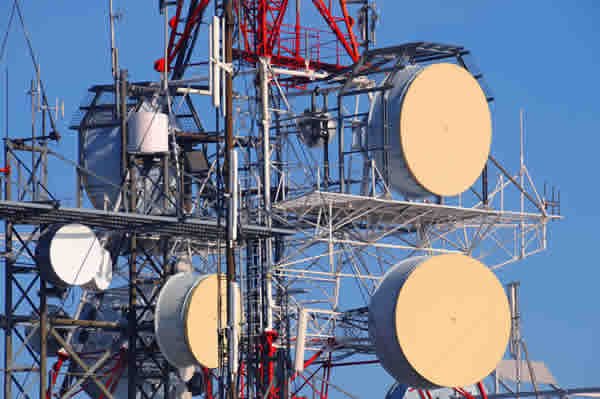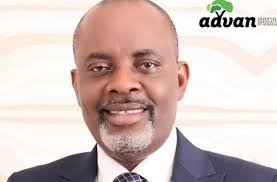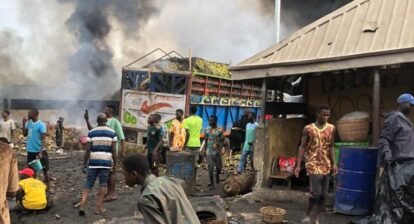Despite spending more than N14.36 billion on alternative sources of electricity for rural areas across the federation in 2024, the Federal Government proposed to spend N1.3 trillion to deepen its efforts in 2025.
The Rural Electrification Agency will handle the projects under the Ministry of Power.
This is as the REA, which the Economic and Financial Crimes Commission is probing for N12.7 billion fraud, has failed to connect hundreds of communities to the national grid.
As part of the ongoing probe, the EFCC traced 27 accounts to the suspended Managing Director of the REA, Salihijo Ahmad.
In March 2024, Ahmad was suspended indefinitely by President Bola Tinubu alongside Olaniyi Netufo, the executive director, Corporate Services; Barka Sajou, executive director, Technical Services, and Sa’adatu Balgore, executive director, Rural Electrification Fund and a new acting management team was appointed for the agency, headed by Abba Aliyu as the Managing Director/CEO.
Meanwhile, rural communities in Edo, Ogun, Taraba, Yobe, Sokoto, Jigawa, Zamfara, Enugu, Imo and several other states complained that they have not been connected to the national grid.
They have also not benefitted from any electricity projects despite fiscal appropriations and promises by the REA.
Last year, the World Bank stated that Nigeria has the world’s largest electricity access deficit, with 45 per cent of the population (90 million) lacking access to the electricity grid and 26 per cent living in rural areas.
To solve this challenge, the government entered into a $750m agreement with the World Bank to construct 1,200 mini-grids and other international creditors to improve electricity access in rural communities across Nigeria.
This energy gap is bridged through efficiency and sustainable energy solutions such as solar and grid-based power projects.
But contrary to its promises, findings by The PUNCH showed that tangible results haven’t been achieved despite numerous promises.
Stakeholders, including civil society organizations, also noted that previous efforts by the government to boost rural electrification have not yielded tangible results as millions of Nigerians in these areas continue to live without reliable access to electricity.
Data obtained by The PUNCH from GovSpend, a repository platform that analyses government spending, indicate that the REA spent N14.36bn on rural renewable electricity projects between January and November 5, 2024.
This amount is likely higher as the website didn’t capture its full-year expenditure.
A breakdown showed that the agency allocated funds for hundreds of rural projects with the highest disbursement of N508. 587m for the supply and installation of solar street lights in various markets across Lagos State, and N391m for the provision of alternative energy intervention for load support/lighting in Itchi, Unadu, Alo-agu communities.
Other allocations are N223.07m for the provision of solar systems for energising security in South-South states, N203.32m for the provision of solar streetlights in Edun and Ita Kure area, N273.58m for the distribution of integrated solar lights across Odu, Abocho and other communities and N156m for the deployment of solar mini-grids for productive agro in the South-South.
In addition, the government has proposed an investment worth N1.13tn in the current year to improve the supply of electricity to rural areas across the federation aimed at providing power to underserved communities across the country.
An analysis of the 2025 proposed budget submitted to the national assembly for scrutiny showed that the amount domiciled under the Ministry of Power and the National Rural Electrification Agency will be expended on 41 projects.
It stated that N200m will be spent to provide for the completion of the ongoing rural electrification scheme in Akwa-Ibom, Imo, Kebbi and Borno States.
Other states such as Plateau, Abia, Sokoto, Benue, Bauchi, Kano, Ebonyi, Ekiti, Yobe, Taraba, Zamfara, Osun, Ondo, Rivers, Oyo, Nasarawa, Lagos, Ogun, Niger, Katsina, Kaduna, Kwara, Kogi, Gombe, Jigawa, Enugu, Federal Capital Territory, Delta, Edo Bayelsa, Cross Rivers, Adamawa and Anambra will get an envelope funding of N1.65bn for the completion of ongoing electrification projects.
The document also disclosed that N100bn will be spent on the National Public sector solarization initiative, N216.21bn on the Nigeria Electrification project and N225bn for the distribution access through the renewable energy scale-up programme.
The proposed N1.13tn investment in rural electrification aims to address this issue by deploying renewable energy solutions, including solar mini-grids and off-grid systems, alongside the expansion of the national grid.
While the government claims to have achieved significant milestones in boosting electricity supply to rural communities through alternative power sources, residents say the disconnection from the national grid has stifled economic growth, and development and has fuelled rural-urban migration.
These residents living in Bayelsa, Benin, Imo, Taraba, Zamfara and other states say the government is unconcerned about their predicament.
For instance, more than 70 per cent of residents in Zamfara state have not been connected to the national grid, The PUNCH learnt on Monday.
Investigation showed that Birnin Magaji, a local government headquarters in the state, has not been connected to the national grid since its creation in 1996.
Some residents who spoke to PUNCH said they have been living without electricity since the creation of the state in 1996.
A trader, Musa Haruna, said that the people of his community have never enjoyed electricity.
Haruna stressed, “We, the people of Kazauda village, are living in darkness, and we don’t complain because we are used to it. We normally go to Gusau town to buy ice cream during Ramadan fast and other festivities.”
A resident of Madaro village, Sanusi Shehu, told The PUNCH that he only enjoys electricity when he travels out of his community. He said, “I only see electricity when I travel to urban areas.”
He explained that the people of his village have written to both the state and the local government, requesting to be connected to the national grid, lamenting that their complaints had yet to be addressed.
“We complained severally to both the state and the government governments to link our community to the national grid but up to now, nothing has been done,” he lamented.
Residents of Peva in Chanchanji Ward of Takum Local Government and communities in Bali Local Government Area of Taraba State decried the lack of electricity in their areas, lamenting how this has affected their lives and livelihoods.
In Peva, residents say life comes to a standstill after sunset as families depend on kerosene lamps and petrol generators for lighting.
Many complain about the high cost of petrol and the health risks posed by the fumes.








Customer Reviews
Thanks for submitting your comment!